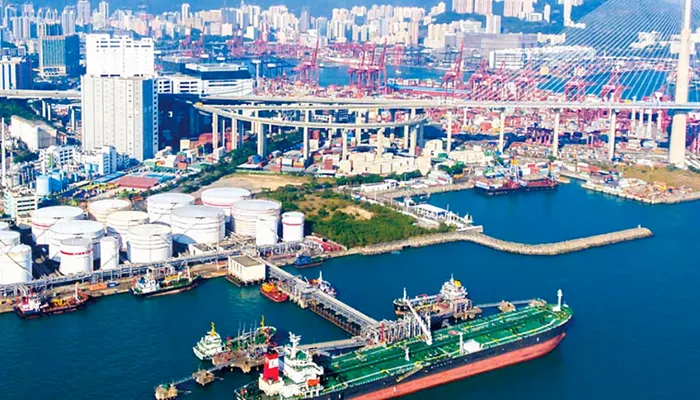Trade insiders have revealed that Saudi Arabia’s crude oil shipments to China are anticipated to experience a modest decline in July. Despite this slight reduction, the kingdom is set to maintain a strong presence in the Chinese market for the third consecutive month, reinforcing its position as a key supplier to the world’s largest crude oil importer.
According to refinery allocation data specific to China, Saudi Aramco—the Saudi state-owned oil company—is scheduled to deliver approximately 47 million barrels of crude oil to Chinese refiners in July. This figure represents a decrease of about 1 million barrels compared to the June allocation.
Sources close to the matter indicate a divergence in supply distribution among Chinese refiners. The joint venture refinery in Fujian province, operated in partnership by Saudi Aramco along with China’s state-owned Sinopec and CNPC, is expected to receive an increased volume of crude oil in July. Conversely, several independent Chinese refiners—including Rongsheng Petrochemical, Hengli Petrochemical, and Shenghong Petrochemical—will see their crude allocations reduced.
Efforts to obtain an official comment from Saudi Aramco were unsuccessful, as the company did not immediately respond to requests.
This slight shift in supply occurs in the context of broader oil market dynamics, with Saudi Arabia and other OPEC+ members implementing a strategy of gradual production increases. In June, the Organization of the Petroleum Exporting Countries and its allies (OPEC+) agreed to raise collective oil output by 411,000 barrels per day, marking the third consecutive monthly increase scheduled for July.
Since April, eight OPEC+ countries have either increased production or announced plans to do so, cumulatively adding around 1.37 million barrels per day to global supply. This output boost represents 62% of the group’s announced target to raise production by 2.2 million barrels per day to meet growing global demand and stabilize the oil market.
The expected reduction in Saudi crude shipments to independent Chinese refiners could reflect shifting market priorities or supply chain adjustments as OPEC+ seeks to balance production increases with sustained demand from major consumers like China.
Overall, Saudi Arabia’s continued robust crude exports to China highlight the kingdom’s commitment to securing its market share despite the ongoing complexities of global oil supply and geopolitical tensions impacting energy markets worldwide.
Related Topics:
Thai Oil Responds to Sriracha Offshore Spill

